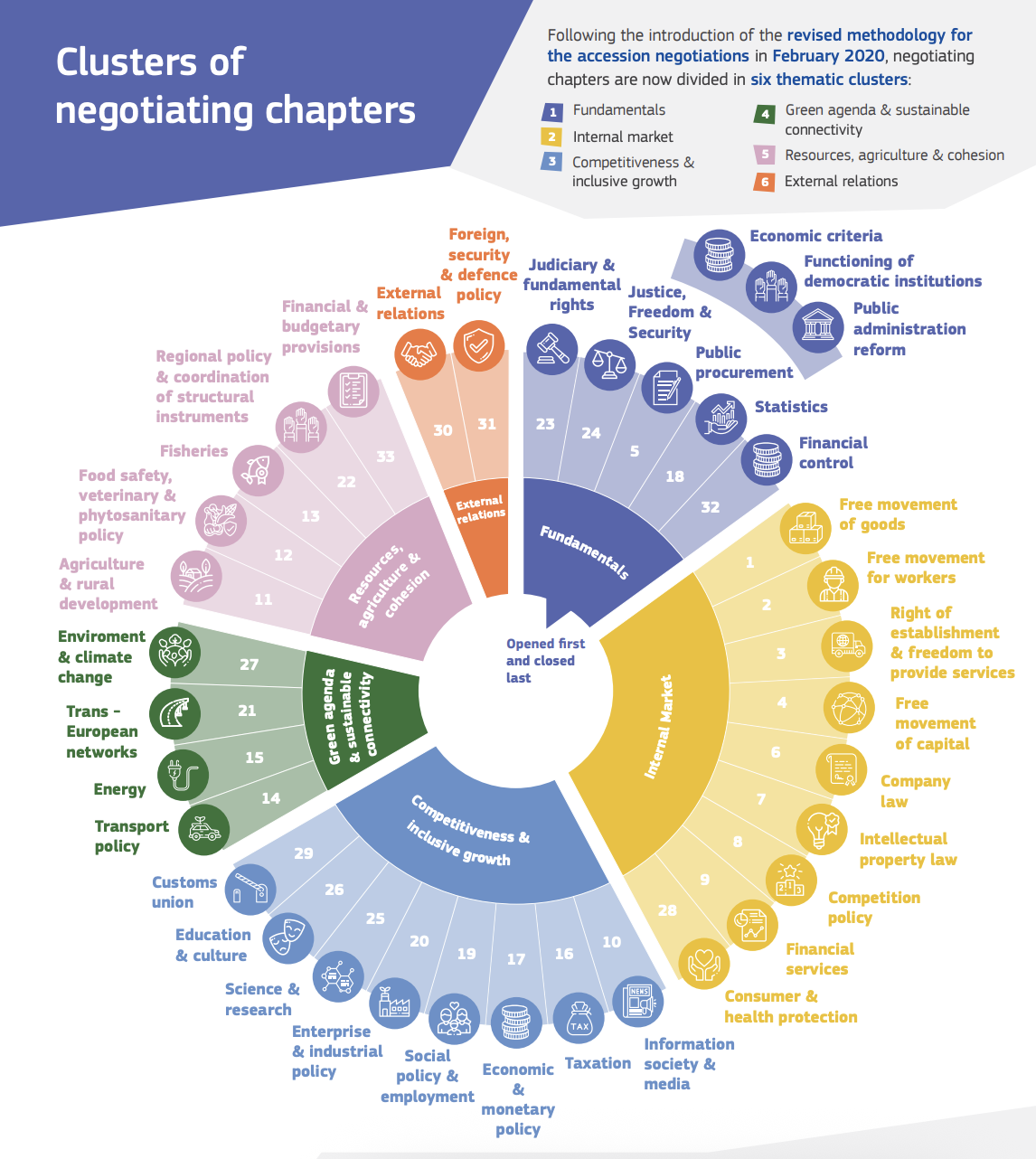Albania’s Steady Ascent on the EU Accession Path
Albania’s journey towards European Union membership has been marked by determination, reform, and a clear vision for the future. Since applying for EU membership in 2009 and gaining candidate status in 2014, Albania has steadily advanced through the complex accession process. The official opening of accession negotiations in July 2022 marked a pivotal moment, signaling the EU’s recognition of Albania’s progress and commitment to European standards.

The accession process is structured around 35 negotiating chapters, grouped into thematic clusters. Each chapter must be opened, negotiated, and closed, ensuring that candidate countries fully align their institutions, laws, and practices with the EU acquis.

Albania’s government has set an ambitious goal to be ready for accession by 2030, a timeline described as “very ambitious” by Prime Minister Edi Rama. This aspiration is underpinned by a comprehensive reform agenda, with a strong focus on the rule of law, anti-corruption, and modernization of public administration.
The “Internal Market” Cluster: A Cornerstone for Integration
A significant milestone was reached in April 2025, when the European Council opened negotiations with Albania on the “internal market” cluster. This cluster is central to the EU’s single market, covering:
- Free movement of goods
- Freedom of movement for workers
- Right of establishment and freedom to provide services
- Free movement of capital
- Company law
- Competition policy
- Financial services
- Consumer and health protection
The internal market cluster is crucial because it forms the economic backbone of the EU, enabling seamless trade, investment, and mobility across member states. For Albania, aligning with these standards means modernizing its economy, strengthening competition, and protecting consumers—key steps for attracting investment and fostering sustainable growth. Successfully negotiating this cluster demonstrates Albania’s readiness to participate fully in the EU’s economic life and benefit from the opportunities of the single market.
Progress and Promise: Albania on the Right Track
Albania’s recent progress has not gone unnoticed in Brussels. The European Commission and EU leaders have acknowledged the country’s strong reform efforts, especially in public administration and the fight against corruption. The opening of negotiations on both the “fundamentals” and “internal market” clusters in quick succession reflects growing confidence in Albania’s trajectory and the political will driving its reforms.
EU officials have highlighted Albania’s potential to be a frontrunner among candidate countries, citing cross-party consensus and administrative capacity as major assets. While challenges remain—particularly in judicial reform and anti-corruption measures—the momentum is clearly on Albania’s side. The government’s ambitious work plan, coordinated closely with the European Commission, is designed to keep the pace of reforms steady and effective.
Conclusion: A European Future Within Reach
Albania’s accession process is a testament to its resilience and commitment to European values. The opening of the internal market cluster is more than a technical step; it is a vote of confidence in Albania’s future as a full member of the European family. With sustained reforms and continued political will, Albania is well-positioned to achieve its goal of EU membership, bringing new opportunities for its citizens and contributing to the stability and prosperity of the region. The journey may be long, but Albania is undoubtedly on the right track.

